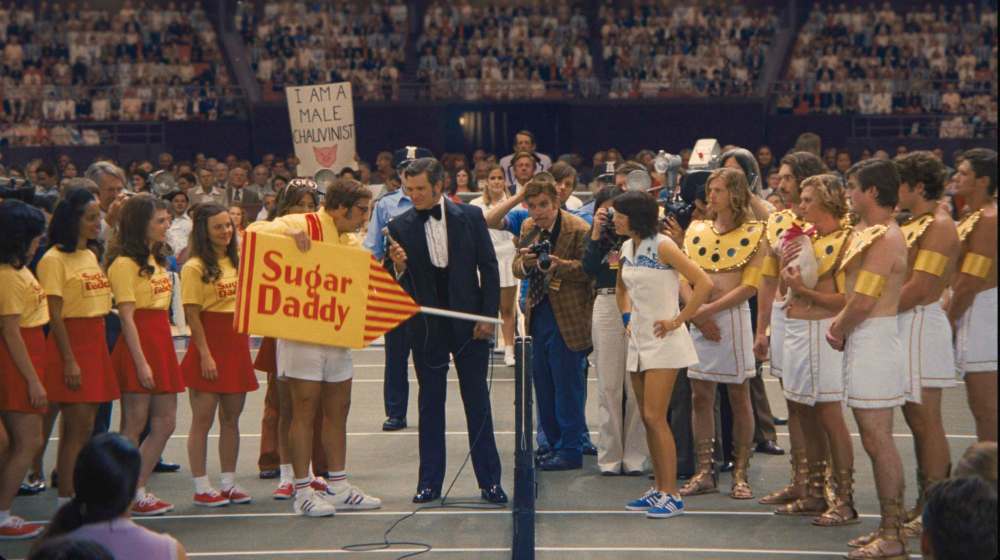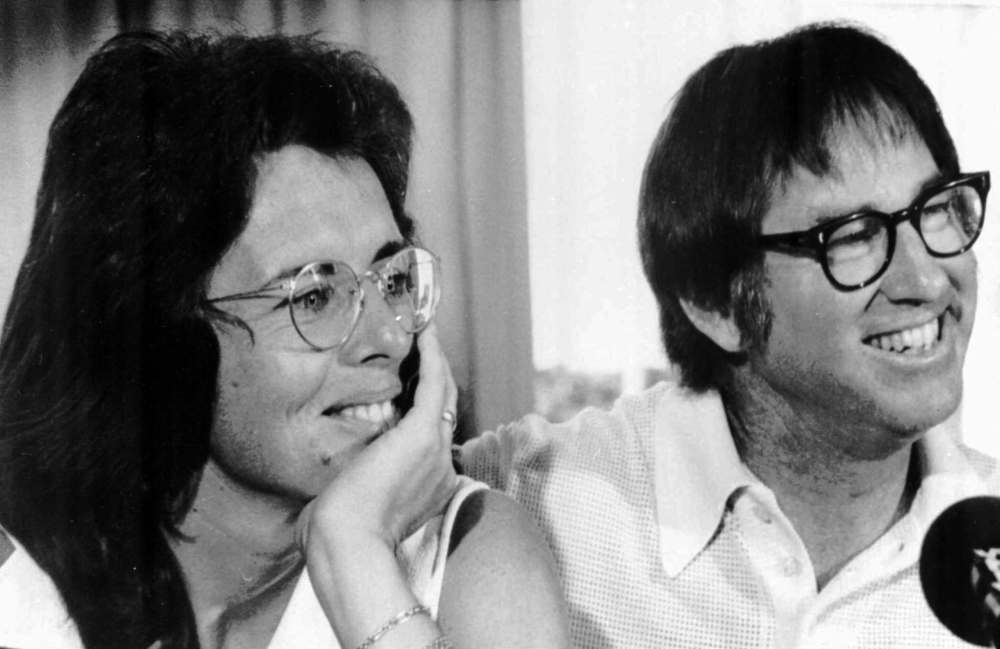Their day in court
Events since historic tennis showdown cast ironic shadow over Battle of the Sexes
Advertisement
Read this article for free:
or
Already have an account? Log in here »
To continue reading, please subscribe:
Monthly Digital Subscription
$0 for the first 4 weeks*
- Enjoy unlimited reading on winnipegfreepress.com
- Read the E-Edition, our digital replica newspaper
- Access News Break, our award-winning app
- Play interactive puzzles
*No charge for 4 weeks then price increases to the regular rate of $19.00 plus GST every four weeks. Offer available to new and qualified returning subscribers only. Cancel any time.
Monthly Digital Subscription
$4.75/week*
- Enjoy unlimited reading on winnipegfreepress.com
- Read the E-Edition, our digital replica newspaper
- Access News Break, our award-winning app
- Play interactive puzzles
*Billed as $19 plus GST every four weeks. Cancel any time.
To continue reading, please subscribe:
Add Free Press access to your Brandon Sun subscription for only an additional
$1 for the first 4 weeks*
*Your next subscription payment will increase by $1.00 and you will be charged $16.99 plus GST for four weeks. After four weeks, your payment will increase to $23.99 plus GST every four weeks.
Read unlimited articles for free today:
or
Already have an account? Log in here »
Hey there, time traveller!
This article was published 29/09/2017 (2955 days ago), so information in it may no longer be current.
In Battle of the Sexes, a strong, determined, capable woman takes on a crass, charismatic grifter and ends up defeating him on their chosen field of battle.
In 1973, it was a reality. In 2017, it comes off as wistful, wish-fulfilling fantasy.
Such is the piquant timing of this drama examining the surprising back-stories behind the televised tennis match between former men’s champ Bobby Riggs (Steve Carell) and women’s champ Billie Jean King (Emma Stone).
Co-directors Valerie Faris and Jonathan Dayton (Little Miss Sunshine), working from a script by Simon Beaufoy (Slumdog Millionaire) shot this film before Donald Trump’s U.S. presidential election victory over Hillary Clinton, so the film’s notes of crushing irony come more from the viewer than the efforts of the directors.

Indeed, the filmmakers are downright generous when it comes to portraying Riggs. Once he got King signed on to what was really just, for him, a money-making scheme, he promoted the match by uttering crude, chauvinistic remarks, saying, for example, that women belong only in the bedroom and the kitchen, in that order.
But behind the scenes, we see Riggs as a benign figure simply engaging in carnival ballyhoo. Our first view of him is glumly sitting at a desk in a deserted office building where he is putting in time working for the father of his very rich wife (Elizabeth Shue). The lavish lifestyle he enjoys is not the result of his success with his habitual gambling, but because he is a kept man.
Conversely, King is introduced as a happily married woman whose supportive husband Larry (Austin Stowell) helps her in her efforts to join women’s tennis upstart Gladys Heldman (Sarah Silverman) to form the Women’s Tennis Association in an effort to gain the earning parity of men’s players denied by sexist tour promoter Jack Kramer (Bill Pullman). (The intervention of the female-targeted cigarette brand Virginia Slims as sponsor proves to be one of the only instances when a tobacco company has acted as a lifesaver.) King ultimately sees victory over Riggs as less of a payday and more of an obligation to the burgeoning feminist movement.

In the leadup to the third-act match, the battle accrues marital casualties. Riggs separates with his wife. And King, acknowledging her own repressed desires, engages in lesbian affair with hairdresser Marilyn Barnett (Andrea Riseborough). This is a few years before King would ultimately be outed as a lesbian.
That relationship would end badly, as it turned out in the real world. But you wouldn’t know it from the film, which frames it in the gauzy tones of a mainstream romance. Indeed, the two actors are sufficiently committed that the film achieves a frisson of forbidden-love eroticism one wouldn’t have anticipated of a PG movie starring Emma Stone.
But that proves to be one of the only moments when the movie really transcends its modest ambitions. For the most part, while competently produced and directed, Battle of the Sexes feels like a safe retelling of the event, no matter what its revolutionary implications. Faris and Dayton err on the side of the commercial, putting out a self-congratulatory message akin to the Virginia Slims slogan: “You’ve come a long way, baby.”
Maybe that felt like the truth in 1973. But after 2016, it feels anything but a safe bet.
randall.king@freepress.mb.ca
Twitter: @FreepKing

In a way, Randall King was born into the entertainment beat.
Our newsroom depends on a growing audience of readers to power our journalism. If you are not a paid reader, please consider becoming a subscriber.
Our newsroom depends on its audience of readers to power our journalism. Thank you for your support.


